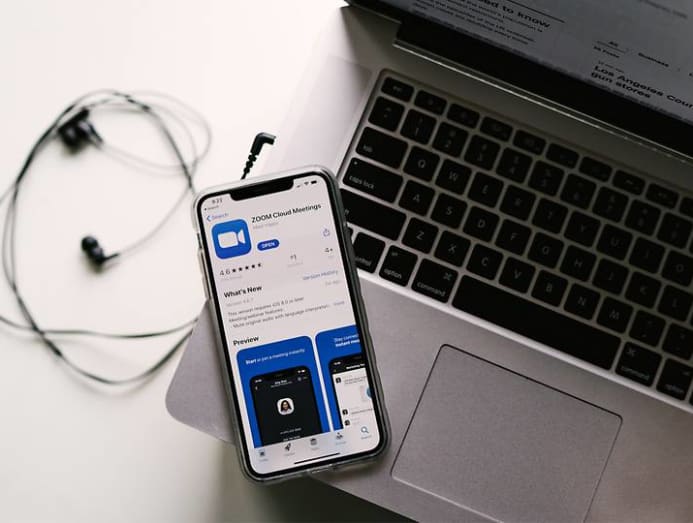Commentary: Confused and isolated on your first job? Here’s how fresh grads can ace remote working
In a work-from-home era, soft skills have never been more essential for graduates entering the workforce, says Linda Ong of Nanyang Business School's Career Services Office.

SINGAPORE: Three months into her first job, 22-year-old Kim* was still struggling to keep up with her team at a consulting company.
From the onset, work-from-home arrangements (WFH) made it hard to establish rapport with her manager.
Within the team, emails, group chats and direct messages were shuttling back and forth at breakneck speed, making her feel out of step, confused and isolated.
Most of her colleagues were faceless names, and the corporate culture felt alien.
Kim’s situation is something newbies hired in a pandemic era can probably relate to. Already challenging for any new working adult, WFH can be even more daunting for fresh graduates.
Joining a company in a WFH arrangement means having to work with strangers almost immediately without physically meeting them. A 30-minute virtual introduction to the team serves as a cursory “hello” but is inadequate for establishing relationships.
A year-and-a-half of the pandemic has made it clear that WFH, whether full-time or a few days per week, may be here to stay. While some employer-partners have given us feedback on graduate hires assimilating seamlessly into their new teams, not all have found it easy.
1. CHECK IN WITH YOUR SUPERVISOR WHEN UNSURE
Sarah*, 23, who joined a multinational corporation, thought her new manager was ignoring her requests for a response. She began to second-guess her work, wondering if her emails and texts were off-point.
As workplaces gradually reopen, is it time to reverse the WFH experiment? Find out from two HR experts on CNA’s Heart of the Matter:
In truth, her manager wasn’t blowing her off, but simply prioritising which requests to reply to. Having to juggle so many other tasks, senior co-workers have a natural tendency to home in on actionable, concise and time-sensitive messages.
After working for years, if not decades, your manager and colleagues may not be aware of your struggles transitioning from student to working adult. They might take for granted onboarding policies that should iron these kinks out and forget that not everyone settles in at the same pace.
But there’s a few things you can do if you’re starting your first job like Sarah. Being clear about communication protocols from the get-go will set expectations and prevent bad habits setting in.
So ask your manager about your colleagues’ preferred working styles and how they would like to communicate. Request for an overview of the team dynamics.
Don’t wait for someone else. Our employer-partners consistently stress that it’s imperative for new joiners to take the initiative and seek assistance until they feel comfortable with the working arrangement.
Having said that, I have seen many firms put in place a buddy system for new hires to smoothen things out. Ethan joined a financial services firm and was assigned a buddy just two years his senior.
Ethan didn’t hesitate to seek his buddy’s guidance and advice, enabling him to settle in very quickly while working from home.
2. FOLLOW UP ON ASSIGNED TASKS
Velu, 24, a marketing graduate who joined a tech company, was surprised at how many micro Zoom meetings took place throughout the day to delegate work.

“Everyone seemed to get it because they were so attuned and accustomed to each other, whereas I was left wondering which tasks were mine to finish,” he said.
But if you’re like Velu, my advice is to refrain from being alarmed by the frequent meetings or calls.
In a physical workplace, colleagues would come over to your desk to exchange information or to brief you. But without a physical office, the only place to meet is virtually.
In fact, you should be proactive. After meetings, send short, bulleted action points to your manager or the team to seek confirmation on tasks assigned and deadlines.
When drafting messages to colleagues, keep messages to the point, outline what you need and by when.
Your productivity and deliverables are dependent on timely responses to your emails so do not hesitate to follow up via email or text if you don’t hear back within the time frame indicated.
3. CHOOSE THE RIGHT COMMUNICATION PLATFORM
One thing you learn when joining the workforce is to prioritise. With a myriad communication channels available to engage with managers and colleagues, you also have to choose wisely.
Every organiastion will have their own practices, but chances are, if you are raising an informal or by-the-way question, try a less formal chat platform like Zoom or Microsoft Teams.
Use emails for formal discussions or when sharing important information, especially when there are senior managers to be copied on that email.
And more importantly, when pandemic restrictions finally allow, take the proactive step to meet with your closest colleague for lunch or a coffee in person. Working becomes so much more pleasant when colleagues become friends.
4. OBSERVE WORKPLACE ETIQUETTE
Etiquette matters. Don’t be late to attend a meeting even if it’s a virtual one.
It is good practice to join the meeting five minutes before and do a quick sound check. If you’re using a camera, ensure you are suitably attired and look presentable.
Keep things professional. While group chats are convenient, it can be annoying when conversations between two people find their way into the group chat room.
Even if your colleagues do that, as a junior staff, you should consider whether a direct message to one colleague needs to be announced to everyone. Pause and think before hitting “send”, as you cannot recall a message on most chat platforms.

Establish also whether your organisation expects you to respond to messages outside of office hours. Depending on what your organisational culture is, you might also want to be more respectful of your colleagues’ time. Be mindful of when you send out work messages.
Even if they are simple updates or are informational in nature, sending them after hours may push notifications to your colleagues’ devices.
5. LEND A PERSONAL TOUCH
If appropriate, don’t be afraid of giving a little personal touch to messages or emails. Make a comment about the weekend or ask a caring question before launching into your to-do list.
You do not always need to have a work-related matter to discuss to say “hello” or start a casual chat with your manager or colleagues in the chat platforms in use. You will build rapport and establish relationships quickly if they see you as engaging and personable.
If all this sounds a bit daunting, don’t be discouraged. Gillian is a fine example of a student who graduated in June 2020 into a tough pandemic job market.
She struggled initially with the newness of working remotely in her tech sales role. But as she practised communicating clearly and proactively, while learning to roll with the punches, she’s settled into her first job well – despite being able to count on one hand the number of team lunches she’s had.
Remember you’re not alone.
Workplace intelligence and soft skills have never been more essential for graduates entering the workforce in the absence of physical human contact. They can mean the difference between feeling disconnected and thriving in this new normal.
*Pseudonyms have been used in this commentary.
Linda Ong is Director of Career Services at Nanyang Business School, Nanyang Technological University, Singapore.









